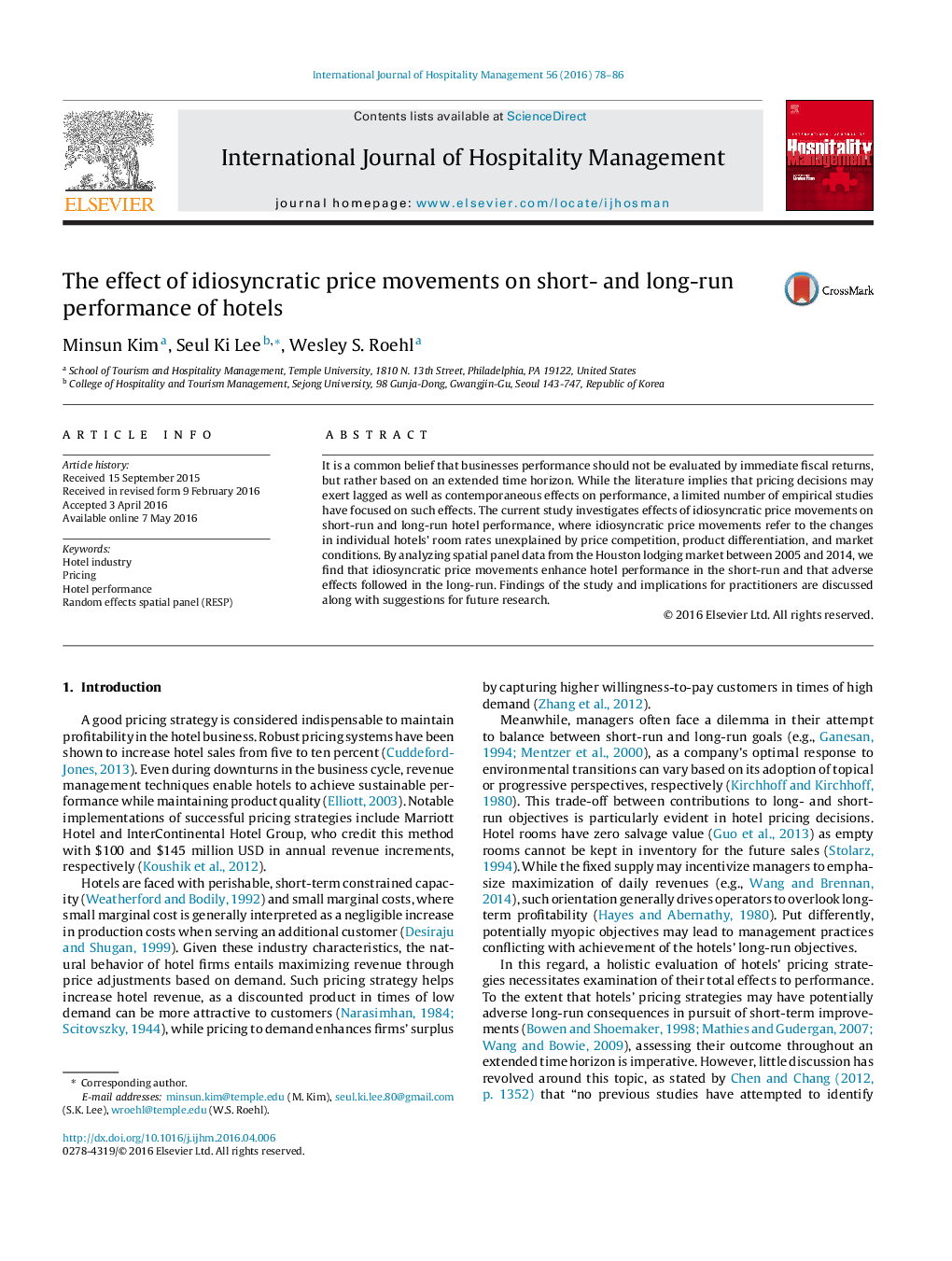| Article ID | Journal | Published Year | Pages | File Type |
|---|---|---|---|---|
| 1009192 | International Journal of Hospitality Management | 2016 | 9 Pages |
It is a common belief that businesses performance should not be evaluated by immediate fiscal returns, but rather based on an extended time horizon. While the literature implies that pricing decisions may exert lagged as well as contemporaneous effects on performance, a limited number of empirical studies have focused on such effects. The current study investigates effects of idiosyncratic price movements on short-run and long-run hotel performance, where idiosyncratic price movements refer to the changes in individual hotels’ room rates unexplained by price competition, product differentiation, and market conditions. By analyzing spatial panel data from the Houston lodging market between 2005 and 2014, we find that idiosyncratic price movements enhance hotel performance in the short-run and that adverse effects followed in the long-run. Findings of the study and implications for practitioners are discussed along with suggestions for future research.
